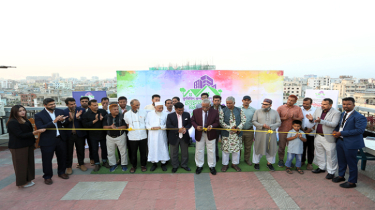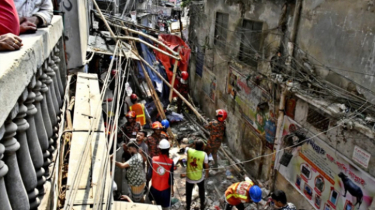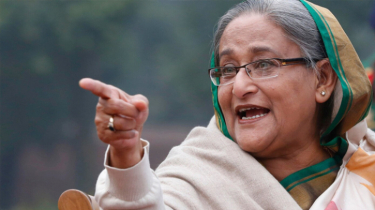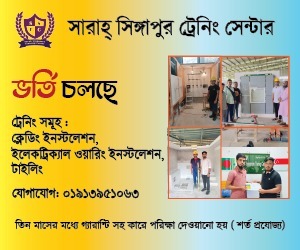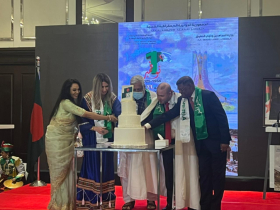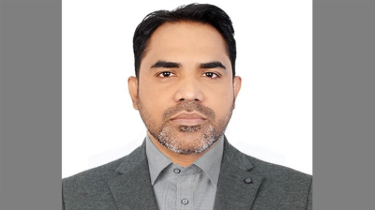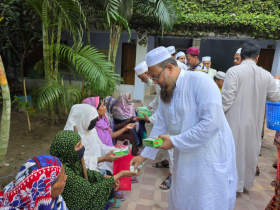Shahidul Alam Joins Global Media Flotilla
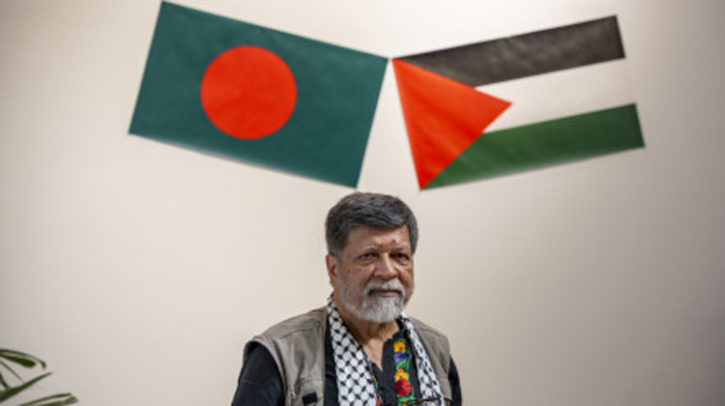
Published : 00:05, 30 September 2025
Renowned Bangladeshi photographer, educator, and human-rights advocate Shahidul Alam has embarked on a transnational media mission organized by the Freedom Flotilla Coalition (FFC), joining the coalition’s Global Media Flotilla en route to Gaza.
Alam travelled from Dhaka to Italy to participate as the first Bangladeshi representative on the Media Flotilla, which the organizers characterize as both a humanitarian and symbolic effort intended to contest Israel’s maritime blockade and to challenge severe restrictions on independent media access to the Gaza Strip.
The FFC frames the Media Flotilla as a rights-based intervention: it is explicitly constituted to document conditions in Gaza, facilitate direct testimonies from civilians, and to contest what participants and organizers describe as an “information blackout” affecting international reporting on the territory. The coalition situates the flotilla within a longer history of activist maritime initiatives aimed at both delivering material assistance and producing counter-narratives to dominant media frames.
Operational circumstances surrounding the flotilla are hazardous and contested. Recent reports indicate that the wider convoy of vessels associated with contemporary flotilla efforts has faced hostile incidents at sea, including attacks by drones and other forms of interdiction, and that several nation-states have warned of the risks attendant to attempts to breach the blockade.
International media outlets describe the current convoy as comprising dozens of civilian vessels and note the involvement of activists, journalists, and medical personnel from multiple countries. These developments underscore both the physical risks to participants and the diplomatic complexities that attend extra-state attempts to penetrate a maritime blockade.
Alam’s public statements emphasize solidarity and a political-ethical rationale for participation. He has articulated that his presence is intended to represent solidarity from Bangladesh and to record and communicate the humanitarian situation in Gaza.
His intervention should be read within his longstanding trajectory as an institution-builder (Drik, Pathshala) and as an activist-photographer committed to documenting rights abuses and conveying marginalized perspectives to global publics.
From an analytical vantage, the Media Flotilla raises several interrelated issues of scholarly and policy relevance: (1) the role of transnational civil society actors in contesting state-imposed information controls during armed conflict; (2) the legal and normative questions implicated in attempts to breach maritime blockades for humanitarian and journalistic purposes; and (3) the epistemic politics of image-making and witness-bearing in highly securitized environments. Each of these dimensions attracts competing claims about legitimacy, proportionality, and risk, and they must be assessed against evolving facts on the water and in international diplomatic fora.
Finally, it is important to note the fluidity of this situation: operational plans, vessel compositions, and state responses are subject to rapid change. Observers should therefore treat contemporaneous reports as provisional while attending to corroborated updates from both organizers and independent news agencies.
Sources Dhaka Tribune, Reuters, Arab News
BD/AN



